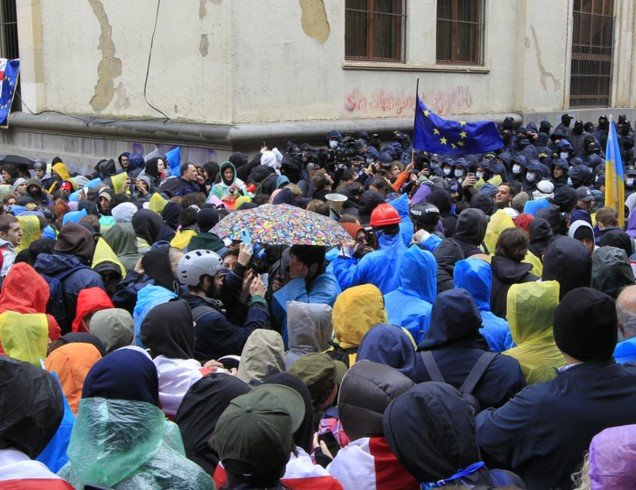Dispute Highlights Growing Strain in Georgia-EU Relations
The Speaker of Georgia’s Parliament, Shalva Papuashvili, has sparked controversy by refusing to meet with a delegation of European Union parliamentarians visiting Tbilisi. This decision underscores the increasing tension between Georgia’s ruling party and certain EU lawmakers, revealing deeper political rifts that could shape future diplomatic relations.
The delegation, composed of the chairpersons of the foreign relations committees from eight EU member states, arrived in Georgia with the aim of strengthening ties and fostering dialogue. However, Papuashvili’s refusal to engage with them is a significant statement that highlights the ongoing discord between the EU and Georgia’s government.
A Political Standoff
Papuashvili’s rejection of the meeting request came after the delegation expressed interest in discussing Georgia’s political landscape with the country’s leadership. In his public letter, shared on Facebook, the Speaker explained that several members of the EU delegation had demonstrated a “critical attitude” towards the Georgian Dream government, particularly calling out Žygimantas Pavilionis, the chairman of Lithuania’s Foreign Relations Committee, for his outspoken opposition to the Georgian administration.
Papuashvili argued that such criticism, particularly ahead of Georgia’s elections, amounted to political interference and an unwarranted attempt to influence the democratic process. He did not mince words in accusing the delegation of being biased, stating that some members had engaged in “unfriendly” actions during the pre-election period, openly supporting opposition parties and even violating Georgian laws by campaigning against the ruling party.

“Some members of the delegation and other foreign politicians constantly and purposefully violated Georgian legislation by conducting a public campaign against the ruling party of Georgia,” Papuashvili wrote. “This was an attempt to illegally influence the will of the citizens.”
The refusal to meet is not only a diplomatic snub but also a clear message that Georgia is unwilling to tolerate what it perceives as external interference in its internal affairs.
A Complex Relationship
The Georgian government’s stance on EU relations has become more complicated in recent months. While the ruling party has expressed its commitment to dialogue with the European Union, it has repeatedly criticized what it perceives as biased or overly critical commentary from certain European politicians. Papuashvili’s refusal is merely the latest chapter in a relationship that has become increasingly strained due to political disagreements and differing views on how Georgia should navigate its domestic and foreign policies.
Despite this, Papuashvili made it clear that his objection was not to the EU as a whole, but specifically to the members of the delegation who he believed had violated the principles of respectful diplomatic engagement. He extended an olive branch to other members of the delegation, affirming his willingness to continue diplomatic efforts based on mutual respect and sovereignty.
“I would like to express my respect to other members of the delegation and confirm my readiness to continue the dialogue within the framework of the fundamental principles and norms of parliamentary diplomacy,” Papuashvili said.
Reactions from the EU Delegation
The response from the EU delegation has been swift, with several members expressing disappointment over the lack of engagement. Michael Roth, the chairman of the German Bundestag’s foreign relations committee, took to social media to note that no one from Georgia’s ruling party had agreed to meet with the delegation, not even government representatives.
This lack of cooperation is likely to fuel further debates within the EU, especially considering the bloc’s ongoing discussions about Georgia’s political alignment and future prospects. The EU has been a significant partner for Georgia, providing support in terms of trade, development, and diplomatic backing, but recent events have cast doubt on the future of this partnership, particularly if the Georgian government continues to dismiss or resist EU-led discussions.
The Bigger Picture
The refusal to meet with the EU delegation comes at a time of heightened political sensitivity in Georgia. The country is gearing up for elections, and tensions between the ruling party and opposition are at an all-time high. External political pressures, especially from the EU, have only added fuel to the fire, with the government asserting its sovereignty and independence in the face of what it sees as undue foreign influence.
Papuashvili’s refusal, while certainly a bold move, could have far-reaching implications for Georgia’s relationship with the European Union. The decision is likely to be seen as both a statement of defiance and a sign that Georgia is not afraid to push back against external criticism.
At the same time, it remains unclear how this will affect Georgia’s aspirations for closer ties with the EU. While the government continues to insist on its commitment to European values, it also makes clear that this commitment is on its own terms. As the diplomatic standoff continues, Georgia’s future relationship with the EU may hinge on how both sides choose to navigate this complex and increasingly contentious issue.
